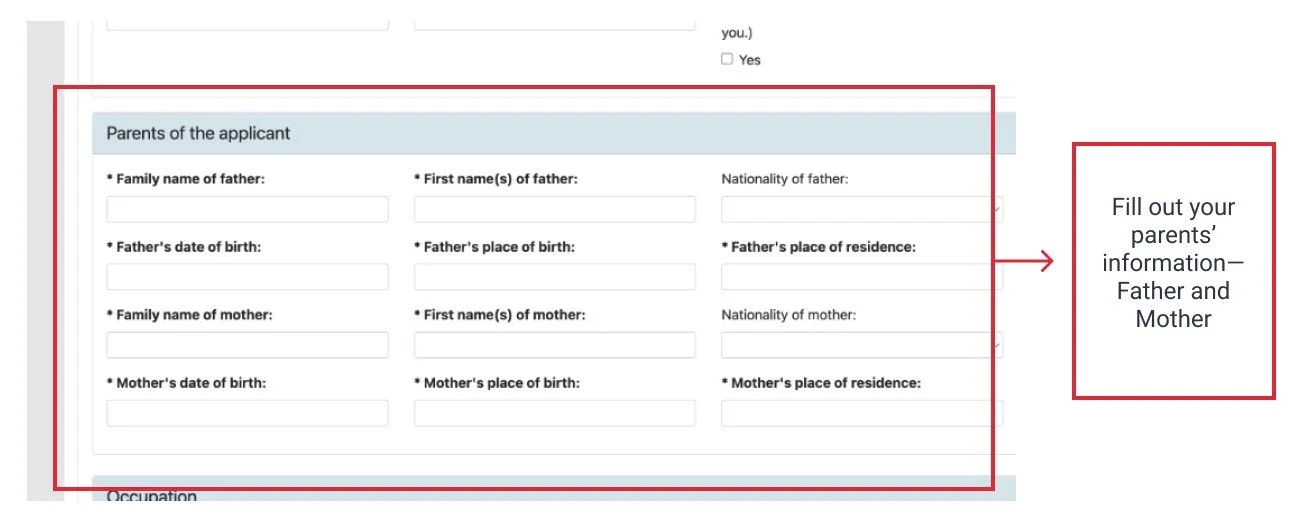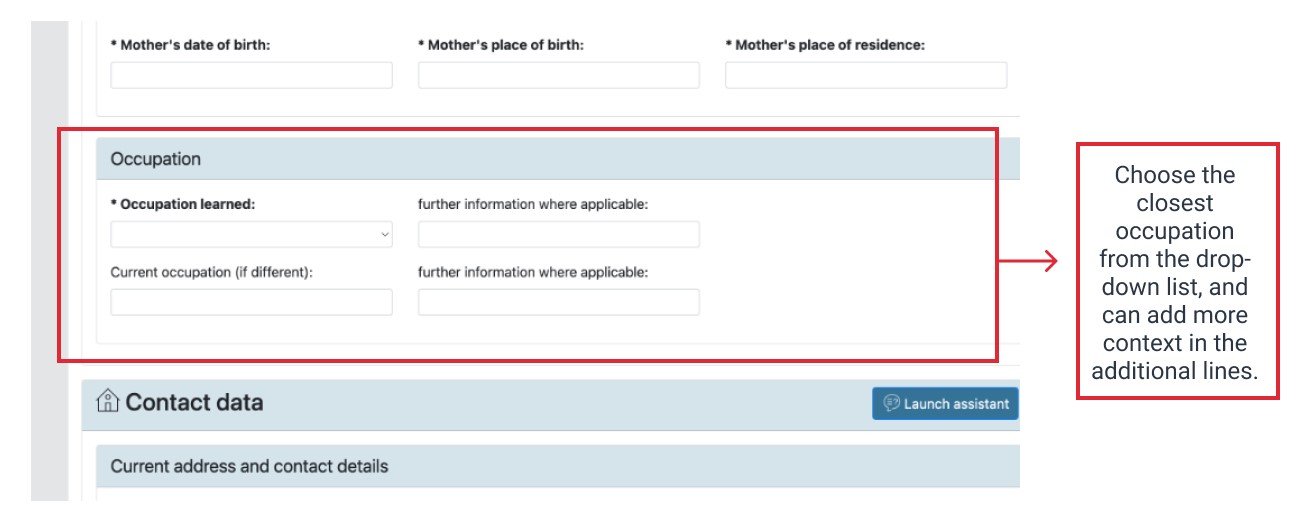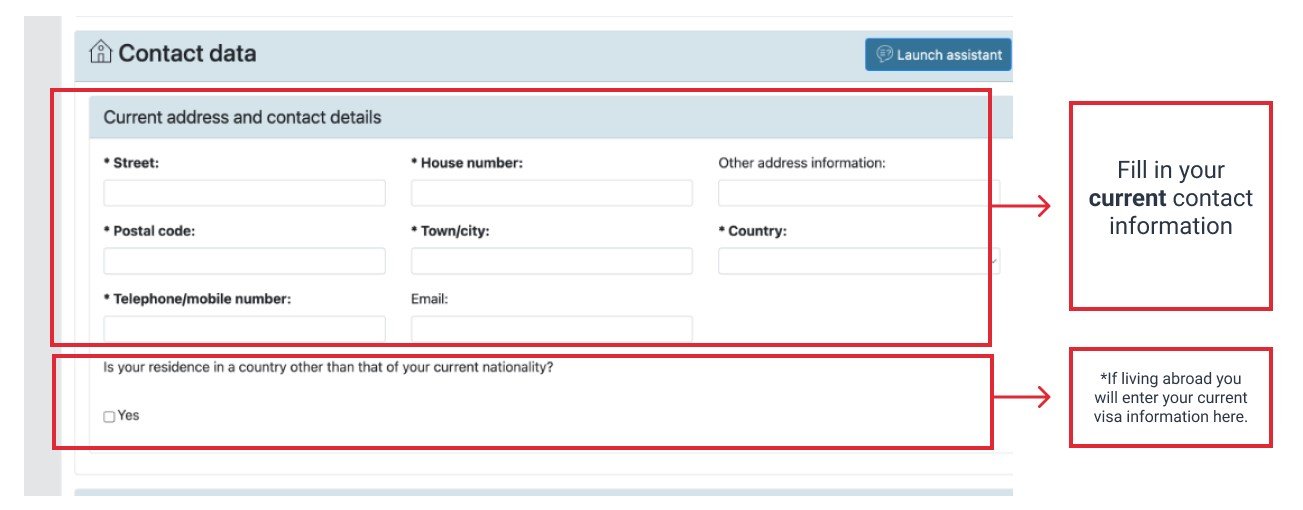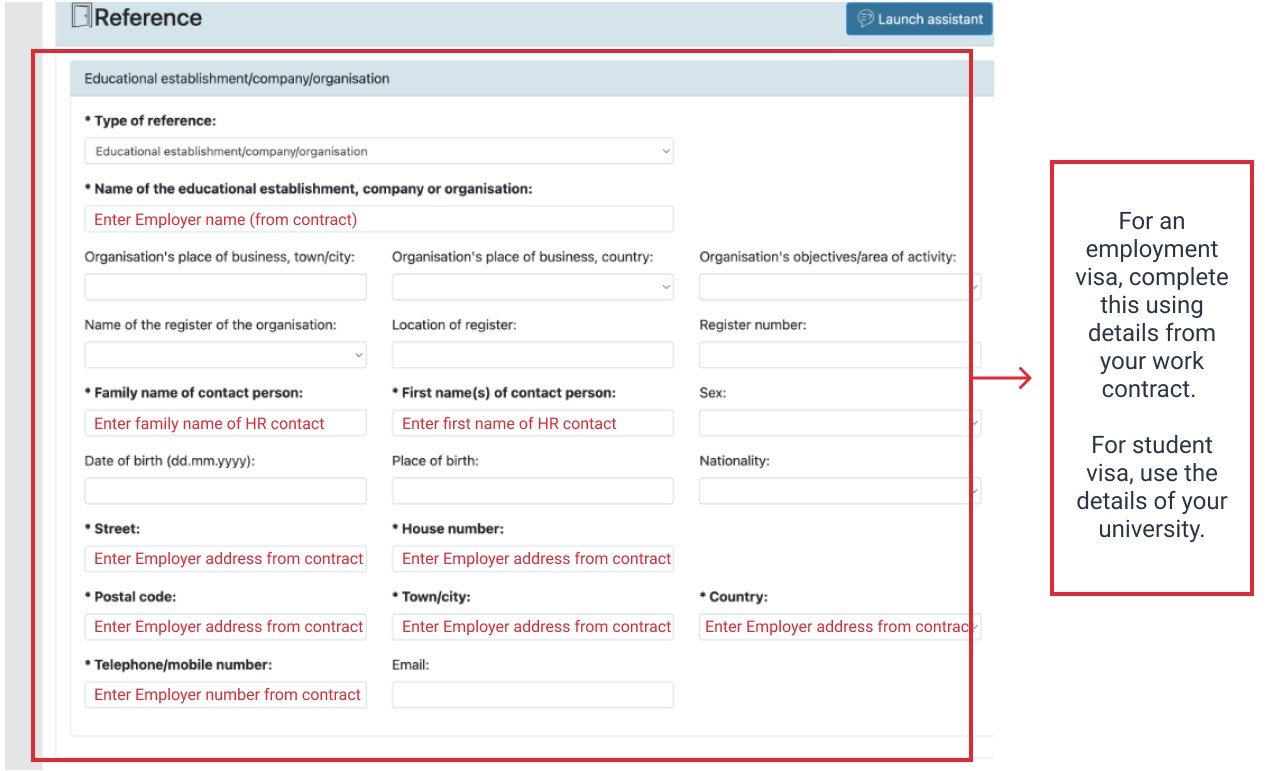
How to complete
the German visa VIDEX form
Completing the VIDEX form for your German visa is one of the crucial steps in the German visa application process. This form, called Antrag auf Erteilung eines nationalen Visums in German, or Application for a national visa in English, captures your personal data, your reasons for arriving in Germany, and the relevant financial and employment information that makes you a compelling addition to German society. Without it, your German visa application will be deemed incomplete.
Ways to complete Antrag auf Erteilung eines nationalen Visums form
There are a few ways to fill out the German visa application form:
A digital form intake, called a VIDEX, preferred by most Embassies
The original paper/pdf form, downloadable from some Embassies
Certain Embassies partner with other providers (ie: TLS, VFS) and they may populate the form using different data intakes
We’ll have a guide for the paper form as well, but for today’s purposes, we’re breaking down the VIDEX form.
What is the VIDEX form for German visa applications?
The VIDEX form, which can be found here is an application form for a National D visa. A National D visa is not an actual residence title, but it allows you to enter Germany with the purpose of beginning work—and often allows you to begin work as soon as you arrive. Once you arrive in Germany, you’ll need to transition that National D visa into a residence title (residence permit or Blue Card), which will come with a different set of paperwork.
The VIDEX is not a complex form, but it is thorough, and it’s important that you complete it accurately so that the local Embassy can quickly approve your German visa. Any misinformation or incomplete form fields may lead to your application being rejected—so take your time and be methodical in completing it! In the guide below, we’ll go step by step through the form, with explanations and tips for how to complete the German visa VIDEX form as accurately and thoroughly as possible.
How to complete the German visa VIDEX form
Section 1: Information on the applicant
While filling in your first and last name, be careful to ensure that the names match your identification documents (e.g. passport).
If you indicate that you are married or have a child, the VIDEX form will expand. Again, make sure that their names match their identification documents (e.g. passports), and are accurately written on the documents linking them to you (e.g. marriage certificates or birth certificates).
Section 2: Information on the applicant's parents
Fill in the details of your parents.
Section 3: Occupational Information
Here you should choose the closest occupation from the drop-down list. You can always can add additional context in the additional lines.
Section 4: Contact Information
Add in your current contact information. If you are currently living abroad, checking the box will prompt a box to expand so that you can add in information about your current residence title.
Section 5: Passport Information
Copy in your passport information, again checking to ensure that everything is correct and there are no typos or date mix-ups.
Section 6: Travel Information
Here is where you’ll tell the German government when you intend to enter the country, and until when you would like to have your visa valid.
For the “From” date, we generally advise choosing a date that allows you enough time to get set up in Germany before you begin work. If you start work on August 01, then, it might be a good idea to say your entry date in Germany will be July 25. If you start work on August 01 and enter August 01 as the entry date, you will likely not be allowed to enter until August 01, which means that you cannot fly into Germany before then and therefore cannot start working on that date.
For the “To” date—residence permits are generally issued valid for 3 years, and Blue Cards for 4 years. The exception would be if your employment contract is limited to a certain date—in which case, your permit will only be granted valid while the contract is valid. We generally recommend that applicants enter their entry date plus three or four years, depending on which residence title they qualify for.
So if I entered on August 01 2000, and was applying for a residence permit, I would put in the “To” date of August 01 2003
And if I entered on August 01 2000, and was applying for a Blue Card, I would put in the “To” date of August 01 2004
Section 7: Reference Information
Our clients are often the most confused about what to enter in the VIDEX form “Reference” section. To make it easy, we advise just using your Employer contact. Use the contact details of your Employer (or University, if you are a student), and the personal details of your contact — usually an HR representative or manager.
Section 8: Financial Information
In this section, what Germany really wants to know is that you won’t be a drain on the state’s social benefits upon arrival. Germany has a very robust social benefits program, including solid unemployment benefits—but they want to welcome you to add to the economy, not tax it! So this is your chance to reassure them that you are financially stable and will be gainfully employed when you arrive in Germany.
We generally recommend our clients fill in the form with, “Employment contract and savings”, but if “Savings” is not relevant to you, you can leave it off.
Section 9: Additional Information
In this final section, you’ll show the German government that you are not a threat to society, and indicate any previous trips to Germany. Choosing “Yes” to answer the question, “Have you visited Germany before?” will expand to add details of your previous trips. Complete this as accurately as possible.
When you’re done, you’ll click “Complete”, which will generate a printable version of the form as a PDF. Print out the copies you need (most Embassies require at least two, if not more), and bring along your biometric photos.









